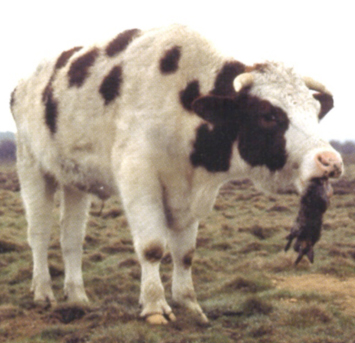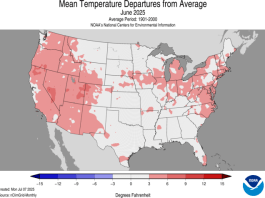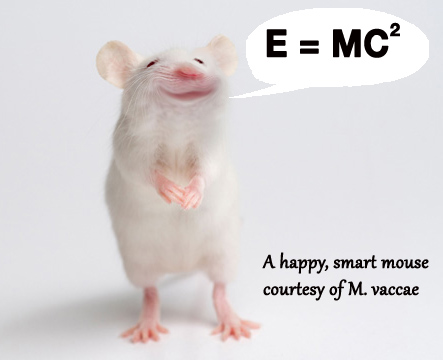
Alexandra Green sees the humor in her work when she declares that someday she hopes to be a “cowmoonicator.” Green has been studying the vocal behavior of dairy cattle. Her work has shown that individuals have distinct voices, and that there are specific “moos” that communicate information.
Working with a herd of 18 Holstein-Friesian heifers over five months, PhD student Alexandra Green from the University of Sydney determined that the cows gave individual voice cues in a variety of positive and negative situations. Together, it’s a language that helps them maintain contact with the herd and express excitement, arousal, engagement or distress.
She recorded 333 samples of cow vocalizations and analyzed them using acoustic analyses programs with assistance from colleagues in France and Italy. A few of the results include the beginnings of a “cow dictionary.”
For example, there is a “word” for anticipation of being fed.
Here’s heifer #1:
And heifer #2
There is also a common sound unhappy cows make when they’re being denied feed:
Here’s one heifer:
And here’s another:
And here are two heifers in oestrus/heat:
Why do we care?

Neville Catt, long-time dairyman and the farmer who worked with Green on the project, says, “For years we’ve known what cattle do, known by the sound whether or not they’re hungry or they’re stressed. But no one’s actually recorded them or put it in a format that people can understand. We need to have this information so people don’t come to us and say, ‘Oh that cow’s crying, that cow’s sad.’ We know what they’re doing. We can tell that now by what Ali’s doing. And that information is priceless to the dairy industry. It’s the future, it’s what we should be doing. Should have done it years ago!”
As Green continues her work, she hopes to put together a kind of “cow dictionary” or an understanding of their whole vocal repertoire.
Learn More
You can read Dr. Green’s paper on this topic, or you can watch this 6:27 video where you’ll meet her and Neville Catt, and see just how they worked together to develop the beginnings of the Cow Dictionary. I found it very interesting to see how carefully her study was laid out.





Fascinating. I think I speak only pidgin-bovine.
Comments are closed.